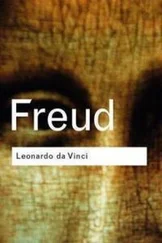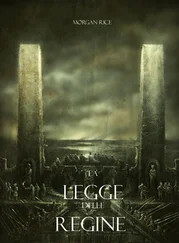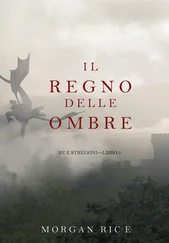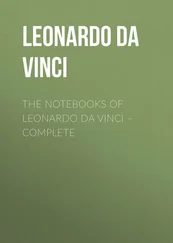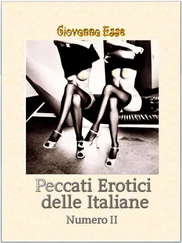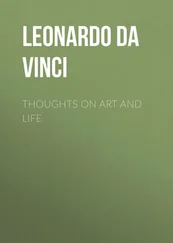A few days after his will was written, on May 2, 1519, Leonardo died. According to the biographer of the Florentine artist Giorgio Vasari, Leonardo would have converted and accepted the existence of God at that difficult time. In fact, according to Vasari, Leonardo suddenly no longer spoke of the primacy of experience and the sober consideration of the outside world. Now instead he would have repented and asked God for forgiveness. Are these considerations pure truth or a much overworked invention? This detail cannot be fully clarified. In the face of death, Leonardo would have blamed himself in a loud voice for having insulted both God and man in general in his art. Even at that moment, whose insatiable thirst for experience and knowledge knew no limits, he would have doubted his actions in front of the small company gathered around his bedside. He would have proclaimed himself out loud a heretic, a sorcerer and an alchemist, at least this is how Vasari describes these last moments of the maestro. Did the great universal genius convert to God, therefore, at the point of death? When he was still lucid and full of life he had in any case thought differently about death: in a much more progressive and modern way. As a well spent day gives a good night's sleep, once noted with hope and pessimistically in his treatise on painting, even a well lived life gives a beautiful death.
The French King François I er, who was in Saint-Germain-en-Laye, was not at Leonardo's bedside, although some later paintings wanted this to be believed. This propaganda effect would have been great for François I erif he had been present at the moment when the universal genius was leaving earthly life, also because the king had long courted him and had given him princely treatment. In addition to leaving Leonardo his summer residence on the Loire for the last few years of his life, the king gave him a princely apanage of 5,000 ducats of gold a year. Leonardo had never obtained so much money. A true friendship had developed between Leonardo and the king. Their conversations often revolved around art and philosophy, but also beauty and architecture. This is also why Leonardo is still seen in France more as a philosopher rather than an artist or inventor.
The French king burst into tears when he received the news of Leonardo's death. The ambitious regent lost forever an intelligent interlocutor. He had listened with delight when Leonardo explained to him the connections between life and art. For Luisa di Savoia's son, the ideas of the Florentine Renaissance were, however, a brilliant example to emulate, which he intended to transfer throughout France. With Leonardo he had one of his main protagonists as a conversation partner, who initiated him to the principles of new painting, sculpture and architecture. He had attracted the "Milanese nobleman" after a long courtship, so the Florentine Leonardo was mistakenly mentioned in the official note at his funeral in Amboise, naming him "first painter" at the French court, as well as "engineer and architect of the king". François I ernow considered himself very fortunate that the remains of the universal genius remained on French soil to document the continuity of the Florentine Renaissance at the French court. Moreover, this was a small idealistic legitimacy for the French king, who had the not entirely legitimate claim to bring not only the Duchy of Milan, but much of northern Italy under his rule. By the way, was the slip in the memorandum on Leonardo's presumed "Milanese origin", considered an intentional affront to his native city, due perhaps to precise instructions from Leonardo to remember posthumously the recent betrayal? Or is it simply a negligible mistake on the part of those who put the universal genius at his last rest? Even this cannot be definitively clarified.
Even during his lifetime, Leonardo ignored religious taboos by anatomizing people and horses, inventing flying machines or studying plants to develop poisons rather than seeking or improving the divine in creation. For example, in 1486 Leonardo first expressed his conviction that man could be able to fly. In his codices he then explained meticulously and with extraordinary foresight how this should happen in detail. According to Leonardo, man, with large wings, could overcome the resistance of the air and then conquer the air, subdue it and finally rise above it. Leonardo's basic knowledge of flying was thus anticipated at the beginning of the 16th century. From March 14th to April 15, 1505 Leonardo wrote the Treaty of Birds in which he recorded the secrets of flight. In 1508 he completed it with studies on the anatomy of birds and the resistance of the air. In the end, he completed everything with observations of gravity and air currents. Then he designed the first parachute and built the first prototype of a flying machine. In another project, he even developed a diver, some say it's a submarine. However, according to his own account, Leonardo did not want to make his plans generally available because of the "bad nature of man". Is this one of the reasons why he encrypted his immense knowledge? Leonardo often resembled an evil alchemist rather than a sensitive artist. His imagination and ingenuity knew no bounds. His irregular nature was often a blessing, but also a curse. Was this the real reason why he didn't complete many projects?
Leonardo was always dissatisfied with himself and the world. He confesses it in his diaries repeatedly. He rushed from one job to another, he was restless and inconstant. The Catholic Church only interested him because he was the biggest client at the beginning of his artistic career. In fact, he had little love for religion. In vain the eloquent master avoided talking about religious categories like the soul. Instead of defining what the soul is, which in any case cannot be seen, he observed critically in his books, it would be much better to study the things that can be recognized by experience, because only this empirical experience does not mislead man. Because where mathematical sciences cannot be applied, one cannot be certain of anything. Was the theme of the soul a means of the church to deceive man? With this doubt Leonardo began his last journey into the realm of the dead.
It took two long months after his death for Leonardo to be buried according to his last will on August 12, 1519 in the church of Saint-Florentin in Amboise. His last wishes were meticulously applied and implemented. The first universal genius in the history of mankind found his eternal rest here. But his rest in peace did not last long. Only 50 years after his death Leonardo's tomb became the object of contention during the religious wars between Catholics and Huguenots who fought in France for power with never before witnessed cruelty. Leonardo's tomb was probably later disgraced by the Huguenots because, as a Tuscan, it was associated with the hated Catherine de' Medici. Ironically, Leonardo, who had always refused any exploitation by the Church, was among the fronts of religious zealots. The plausible reason is because he came from a country that represented the arbitrariness of Catholicism and the papacy. Of Leonardo's mortal remains, in this bloody battle of the French church, all traces were lost, as if the memory of the great scholar were deliberately erased. Only after more than four centuries, in 1984, did the scientists discover bones at a certain point that they finally managed to attribute to Leonardo. In the chapel of Saint-Hubert at the castle of Amboise, they found their well-deserved resting point.
Anchiano by Vinci, April 15, 1452: the birth of an illegitimate child
Dusty roads, flanked by tall pines and majestic cypresses with pillars, lead through olive groves and vineyards to the heights of the gentle hills. Vineyards stretch out for as long as the human eye can see. In the middle of this white landscape is a sleepy place where a small group of houses made of marble and brick are grouped around the small church. Anchiano, a district of Vinci near the medieval castle on the slopes of Monte Albano, halfway between Pisa and Florence. In the middle of the 15th century, life here was hard, rich in deprivation and dangerous, and the social and professional boundaries were in fact insurmountable. The inhabitants were victims of armies and migrant mercenaries who crossed the country and left behind a trail of desolation and destruction. The powerful and wealthy of the area lived in the nearby magnificent Florence where the high walls of the city protected them from invaders. Those who lived in the countryside were vulnerable and helpless against arbitrary attacks by mercenaries and commanders. The city was safer, but the cities were overcrowded and epidemics like the plague raged even more devastatingly.
Читать дальше

